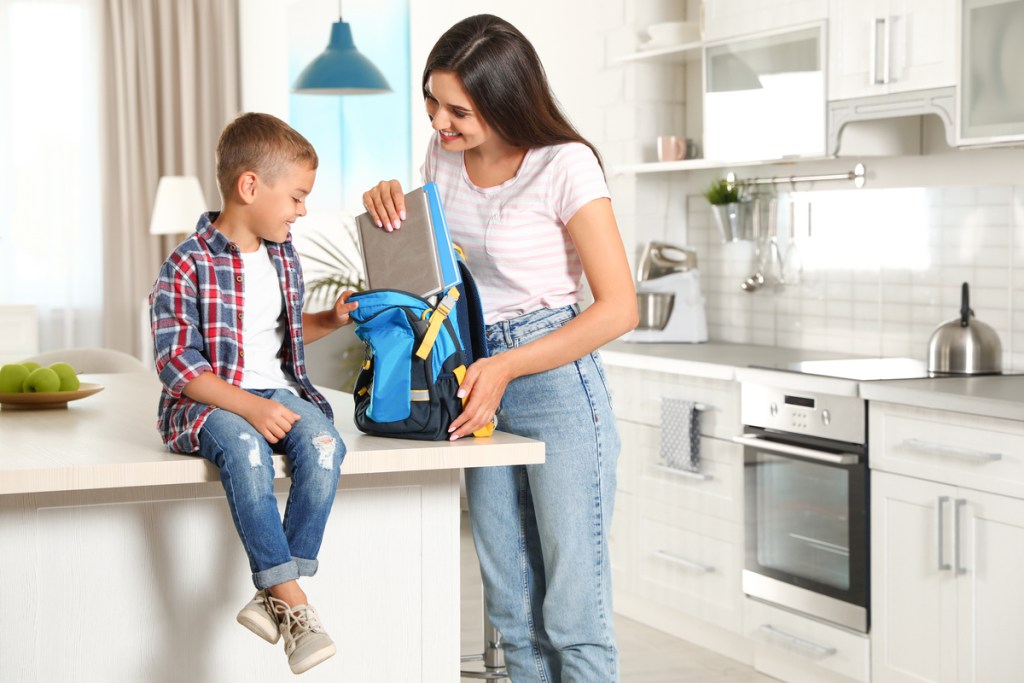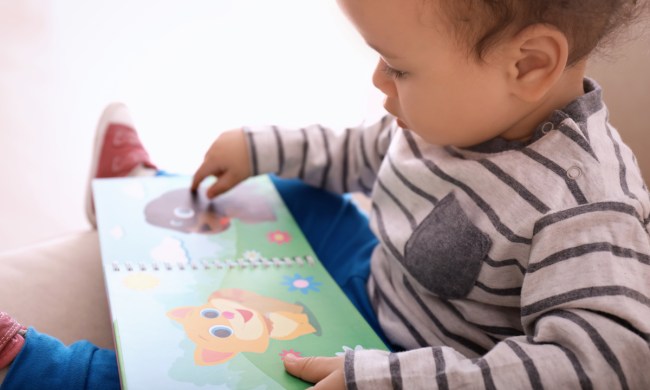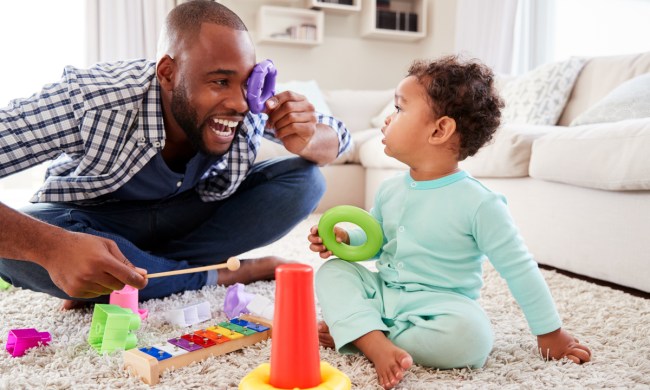Back to school time is extremely exciting for kids and parents. Kids get to see their friends, and parents get to enjoy a hot cup of coffee again. The transition from summer fun to school mode can take a toll on both parents and kids, however.
Whatever your family dynamic looks like, there are some things that you can do the week your children go back to school that can help everyone with the transition. Let’s check out 6 back to school tips for you and your grade-schooler to have an easier first week back.

Create a calendar
It’s so useful to use a calendar or whiteboard to keep everyone’s schedules organized. Whether you want to do it by day or section it out kid by kid, having a calendar will make your life so much easier. Have it set up, have it color-coordinated, and go over everything with your kids. They may forget, they may not remember what was on what day, but they will know it’s updated, accurate, and there.
- Make it colorful
- Make it easy to read
- Go over it with the kids
If you have a lot of kids or your own schedule is just as busy, create a separate calendar that they can check. Kids love to know what’s going on.
You’ll also find that everyone is a little less stressed when the week is planned out. Grade school-age kids love routine and knowing what’s going on. Plus, you don’t want to forget a kid somewhere the first week.
Pack the bags early
Make sure you aren’t scrambling the first day or throughout the week to get the school supplies packed up and ready. But let the kids be involved. Give them each their class list and their bag and let them pack it up. You can double-check them, but let them get excited about it.
Don’t do it the morning of or even the night before. You want to have the bags packed up before you think about doing your normal nightly routine. The more involvement, the better. The more prepped you all are, the less crying there will be in the mornings.
Don’t freak out about changes
The first week can either break you or be fun for everyone. Know that things might go wrong, schedules might need to change, or you might go to the wrong side for pickup.
- Don’t get upset in front of the kids
- Let them know life is constantly changing
- Keep it light and fun
- Have plenty of coffee (or tea)
If you need to drink all of the coffee (or adult drink) after the kids are in bed to deal with the fact that pickup took 30 minutes longer so the school could figure out the new traffic route, so be it. Don’t have a meltdown in front of the kids or they will dread pickup for the rest of the school year.

Get plenty of sleep
Really, this should start a few weeks before school starts, but get that sleep schedule down. That first week is going to take a toll on everyone. Extra sleep is going to be key.
- Mornings will be easier
- Kids won’t be so cranky after school
- You’ll feel better, too
This one isn’t just for the kids. That first week of school is rough on parents as well. You won’t feel so frustrated if the drop-off line hasn’t moved in 9 minutes if you’ve had a great night’s sleep. Your kids won’t fall asleep during dinner if they are rested.
Talk it out
Keep the communication open. Talk to your kids about your first week without them. Let them tell you everything about their first week. Even if it was rough (especially if it was rough), let them tell you what happened.
Share your ups and downs from the week. Talk about how you can have just as fun (or better) of a week the next week and the one after. You could even write it out. Let the kids make a list of their favorite things of the week and the things that didn’t go so well so you can figure out how to keep it going (or change it).

Celebrate the first day
Do a little treat in the morning and something fun after to celebrate everyone getting through that first day. That first morning back (and the whole week, really) is going to be full of mad rushes, forgetting things, maybe learning a new drop-off/pickup routine, and probably at least one of you having a meltdown.
It doesn’t have to be expensive or extravagant. Do a special breakfast or make it themed. After school, you can go for a quick ice cream. Just do something to celebrate the start of school and making it through that first week. You’ll enjoy the win as much as they will.
Maybe your schedule was a little more relaxed over the summer and now you have to tighten it up. Maybe your child doesn’t like mornings, and now the will-you-just-get-up battle that happens every single morning is about to start. Maybe you just want to get through the first week without needing three coffees a day.
Getting you and your children through that first week – without too many bumps – is important for the rest of the year to go smoothly. But if you just keep these tips in mind, you and your kids can have a great first week that will turn into a fun and exciting school year.



